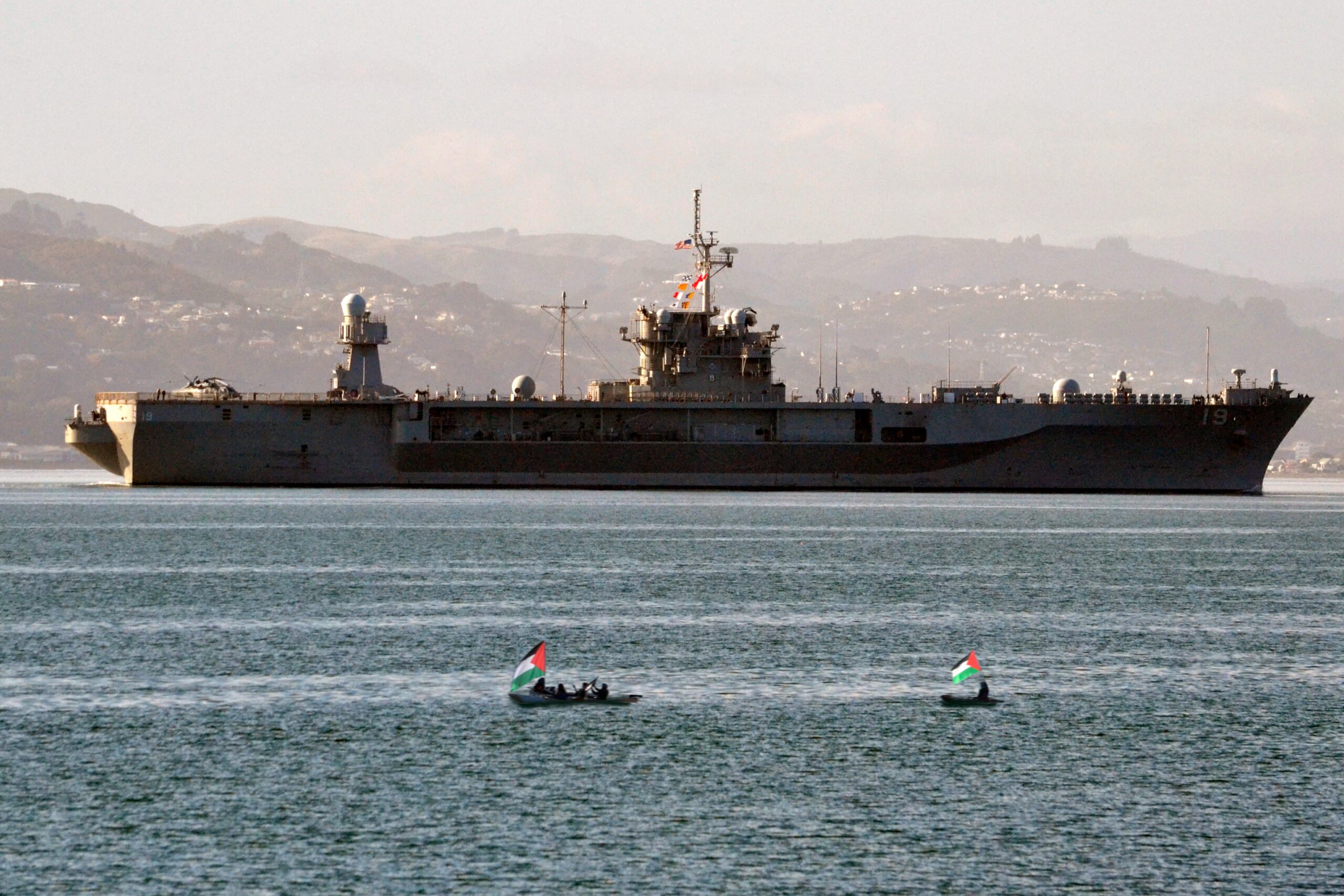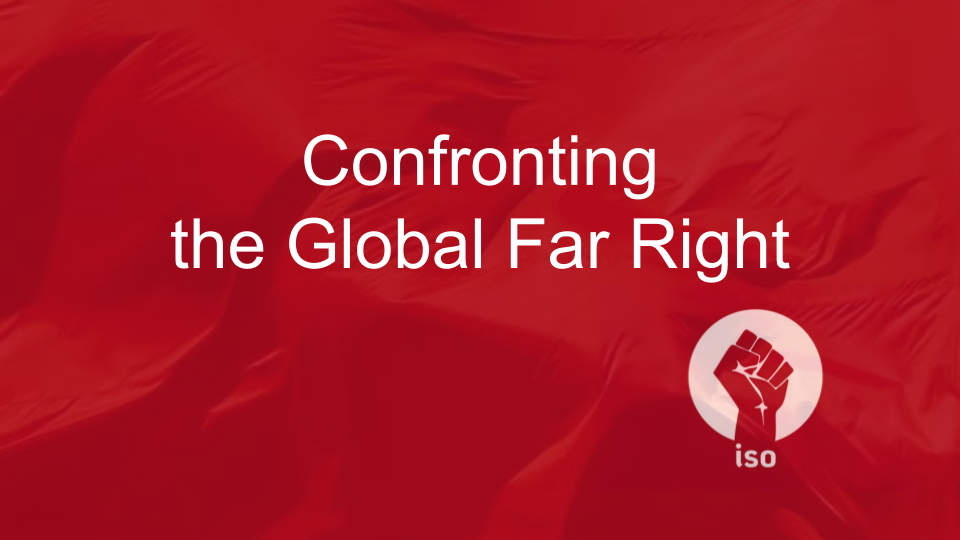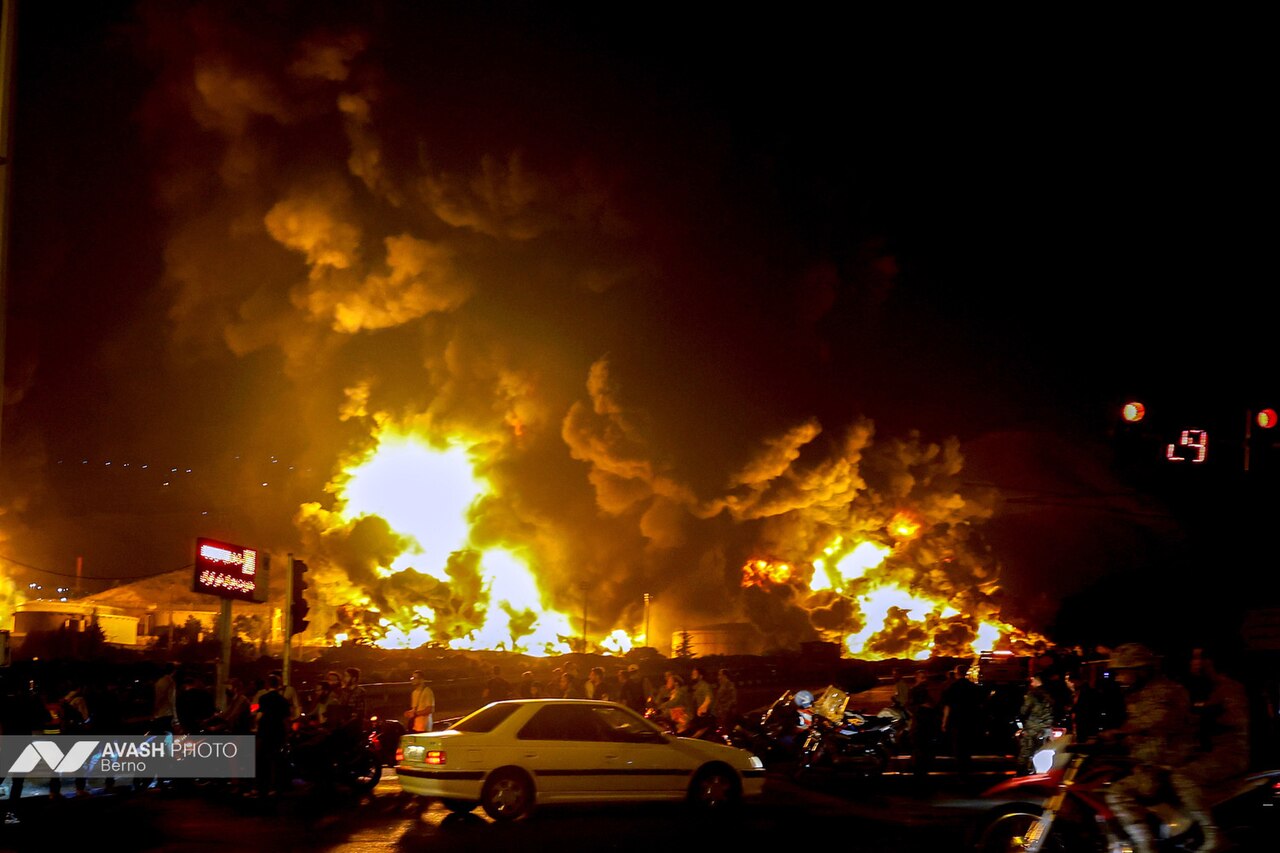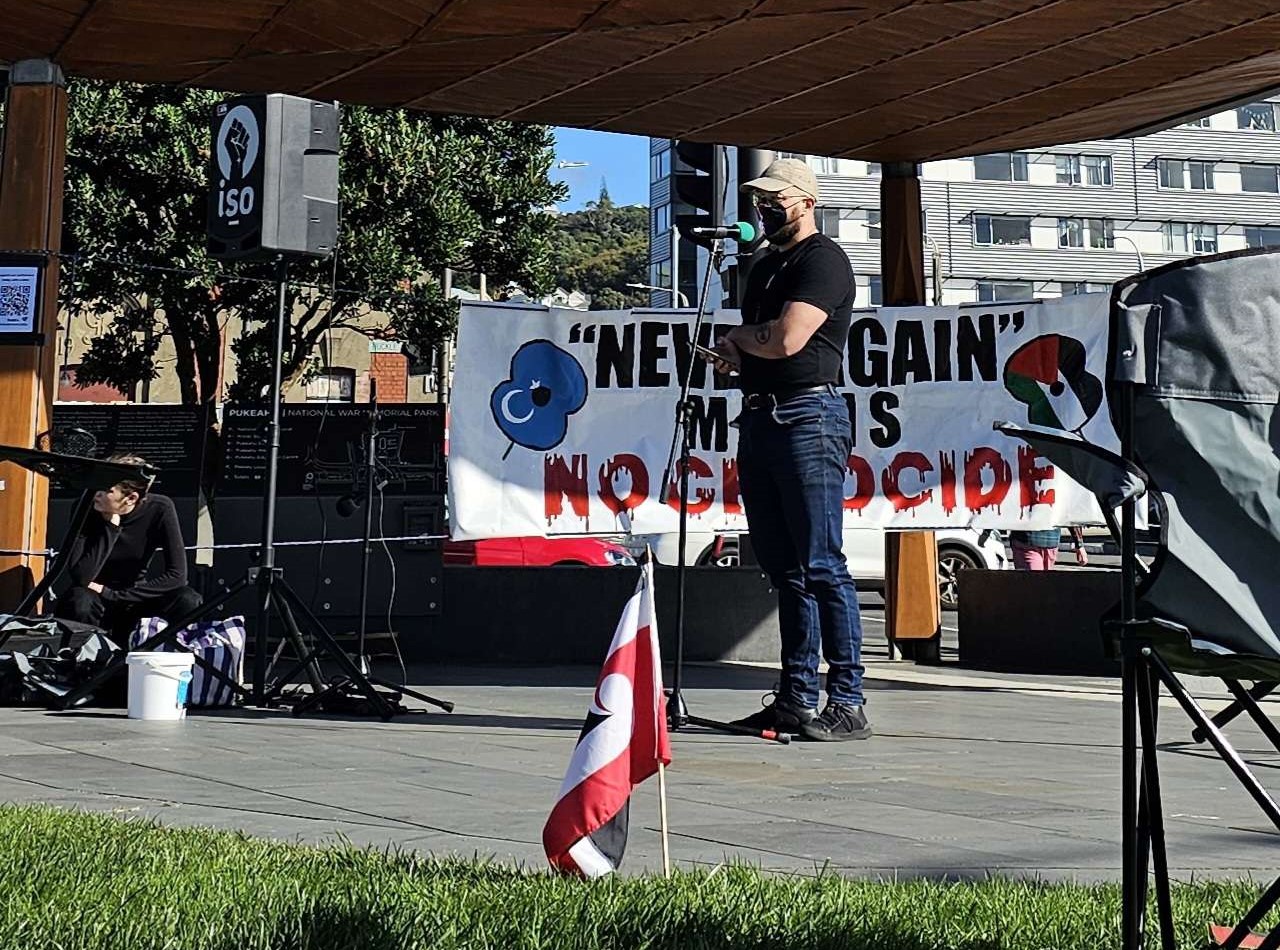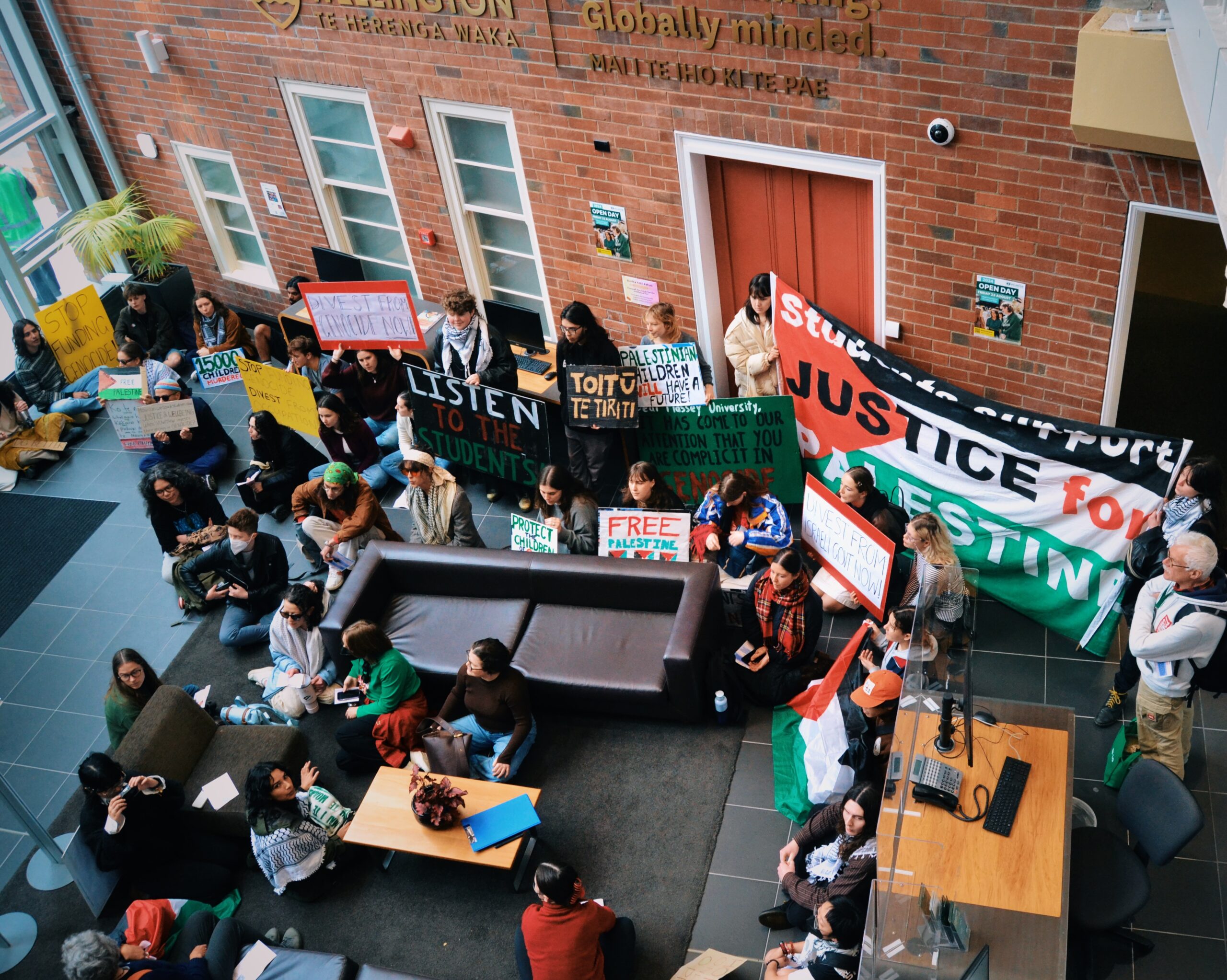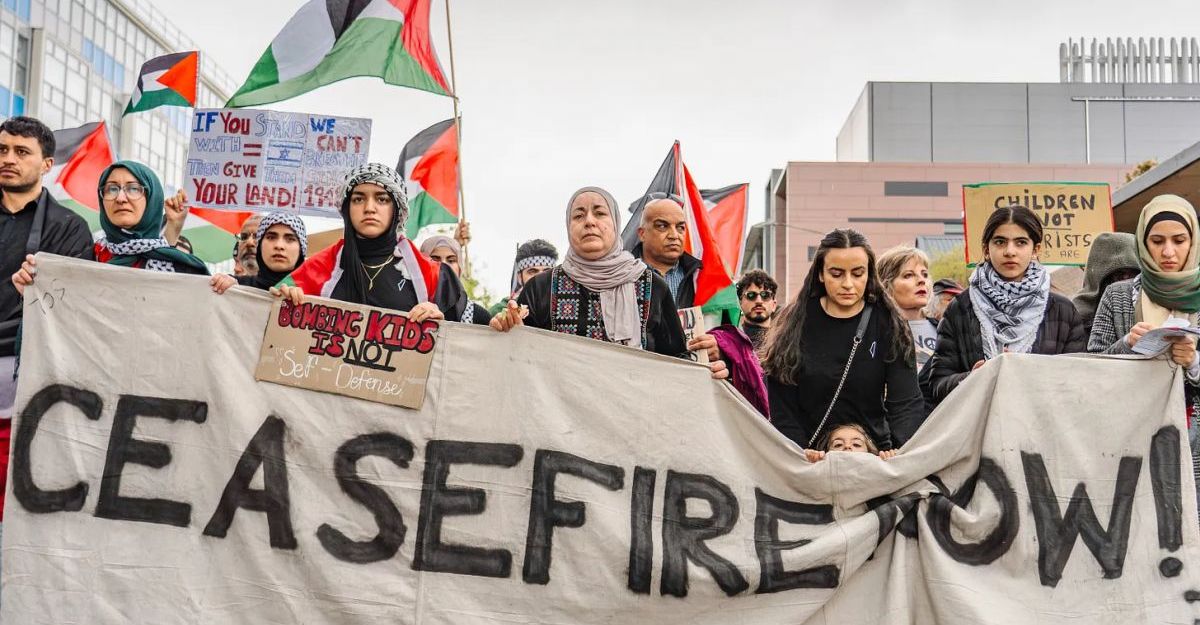The oppression of the Palestinian people continues. Since October 7th, the response to Hamas’ attacks has been Israeli airstrikes, a vicious media campaign condemning communities that are being flattened by Israeli rockets, and the threat of an attempt to force over two million Palestinians from some of the last of their land. There has been a massive global response to the events in occupied Palestine, including the largest pro-Palestinian protests that many countries have seen. There has also been an increase in attention on the Boycott, Divestment and Sanctions (BDS) movement, which aims to put economic pressure on Israel to comply with international law. In this article we look at how the BDS campaign works, and how workers, students and other allies can use it as a tool of solidarity with Palestine.
Feeling such horror for those suffering in Gaza in this latest round of attacks, we can only ask “how did we get here?” Israel was formed in 1948 through the brutal displacement of nearly 800,000 Palestinians and the destruction of more than 530 towns and villages. This pre-meditated ethnic cleansing is known as al-Nakba, the catastrophe. Since then, Israel has implemented a regime of settler colonialism, apartheid and occupation. over the Palestinian people.
During and since its foundation in 1948, Israel has set out to control as much of the land of historic Palestine as possible and to drive as many of the indigenous Palestinian population from the land as it can. Israel’s oppression of Palestinians involves settler colonialism: Zionism seeks to establish a distinct new society, take over control of land and resources and forcibly remove Palestinians. The funding, arming, and international support of Israel highlights a complex web of allegiance. The interconnected market of capital is a force crossing oceans, deserts, forests and seas.
From Tel Aviv to Wellington, from the Mediterranean to the Tasman, a vast amount of money is sunk into the Israeli colonial project. Though Palestinians are steadfast and inspiring in their popular resistance, Israel can maintain its regime of settler colonialism and apartheid with impunity because of international corporate support. Governments fail to hold Israel to account and corporations and institutions across the world help Israel to oppress Palestinians. Though working class protest across the world clearly shows that the people do not support genocide, from union workers in Melbourne to ongoing protests with hundreds of thousands in attendance, capitalists continue to invest in the suffering of the Palestinian people. Blood money soaked in that of the children of Gaza.
This latest outbreak of colonial violence must be considered in this wider context. Streets flattened, thousands killed and grandparents burying their families. Without understanding the economics of the Israeli colonial project, one could not hope to defeat it. What can we, the working class, do about it?
One answer to this is Boycotts, Divestment, and Sanctions. The BDS movement follows the example of the historic end of legal Apartheid in South Africa. The colonial state there enforced a brutally divisive system of systematic ethnic and racial discrimination. Targeted boycotts aimed at South Africa put pressure on the state to comply with the international call to end legal Apartheid. This is the context for the protests against the South African SpringBok rugby tour of New Zealand in 1981. The Palestinian-led BDS movement urges similar action to pressure Israel to comply with international law.
BOYCOTT
Boycotts involve withdrawing support from Israel’s apartheid regime, from complicit Israeli sporting, cultural and academic institutions, and from all Israeli companies and international companies engaged in violations of Palestinian human rights. This is something that anyone can do as an individual, but it has even greater effectiveness with collective action through workers, unions, communities and associations pulling together and boycotting en masse those companies that take advantage of the exploitation of the people of Palestine.
DIVESTMENT
Divestment campaigns urge banks, local councils, churches, pension funds and universities to withdraw investments from the State of Israel and all Israeli and international companies that sustain Israeli apartheid.
SANCTIONS
Sanction campaigns pressure governments to fulfil their legal obligations to end Israeli apartheid by not aiding or assisting its maintenance; by banning business with illegal Israeli settlements; ending military trade and free-trade agreements; as well as suspending Israel’s membership in international forums such as UN bodies and FIFA. Though both divestment and sanctions require states and institutions to comply, working people together as workers, customers, voting blocs, parishioners, and students can demand that these states and institutions take action, through occupations, strikes, worker blockades, democratic processes and mass demonstrations.
According to the BDS Movement website,
BDS aims to end international support for Israeli violations of international law by forcing companies, institutions and governments to change their policies. As Israeli companies and institutions become isolated, Israel will find it more difficult to oppress Palestinians. BDS campaigns also raise awareness about how Israel oppresses the Palestinian people. The growth and success of the BDS movement sends a clear message to Palestinians and to world governments that people around the world are increasingly unwilling to accept Israel’s oppression of Palestinians.
The BDS movement is currently calling for a targeted approach, singling out a small number of companies to have greater impact. These are split into four types: consumer boycott targets, divestment targets, pressure (non-boycott) targets, and organic boycott targets.
BDS calls for a complete consumer boycott of these brands: Siemens, Puma, Carrefour, AXA, HP, SodaStream, Ahava, RE/MAX, and Israeli produce. The following brands are targets for Divestment: Elbit Systems, HD Hyundai/Volvo/CAT/JCB, Barclays, CAF, Chevron, HikVision, TKH Security. Boycotts are not always going to be the most effective or feasible way to put pressure on a company. For strategic reasons, BDS calls for pressure campaigns rather than boycotts on some companies. These are: Google and Amazon, AirBnB and Disney. Finally, the BDS endorses some grassroots boycotts that they themselves did not initiate, but which have gained momentum in some areas. These include: McDonalds, Burger King and Pizza Hut.
For you as a worker, the BDS website provides more information about this targeted approach and the wider campaign. If you would like to investigate other brands that profit from Israeli apartheid, websites such as boycott.thewitness.news provide categories and lists of products and services with direct ties to Israel and the ruthless oppression of the Palestinian people. The app Halal Kiwi provides a list of NZ products and companies that finance and profit from Israeli colonialism in occupied Palestine. A list of some companies actively profiting from this colonialism is included below.
BDS alone will not liberate the Palestinian people, but it is a direct action that the people can take to attack the assets that fund the Israeli Offense Forces and the Israeli surveillance state.
Mai te awa ki te moana, Mana Paretaina Motuhake ake ake ake.
Some brands profiting from Israeli apartheid:
Manufactured by PepsiCo corporation or subsidiaries:
- Bluebird Foods
- Obela
- Smith’s
- Twisties
- Sunbites
- Nobby’s
- Sakata
- Parker’s
- Copper Kettle
- Burger Rings
- Delisio
- Tostitos
- Tasty Toobs
Manufactured by Coca-Cola:
- L&P
- Thumbs Up
- Barista Bros
- Fuze Tea
- Nutri Boost
- Keri
- Kiwi Blue
- Lift
- mOst Organic Juices
- e2
- Pure Drop
- Sparkling Duet
- Thexton’s
L’Oreal Brands
- Aesop
- Biotherm
- Diesel Fragrances
- Garnier
- Kiehl’s
- Lancome
- Maison Margiela Fragrances
- Maybelline
Nestle Products and Brands
- Movenpick
- Nescafe
- Nespresso
- Nesquik


